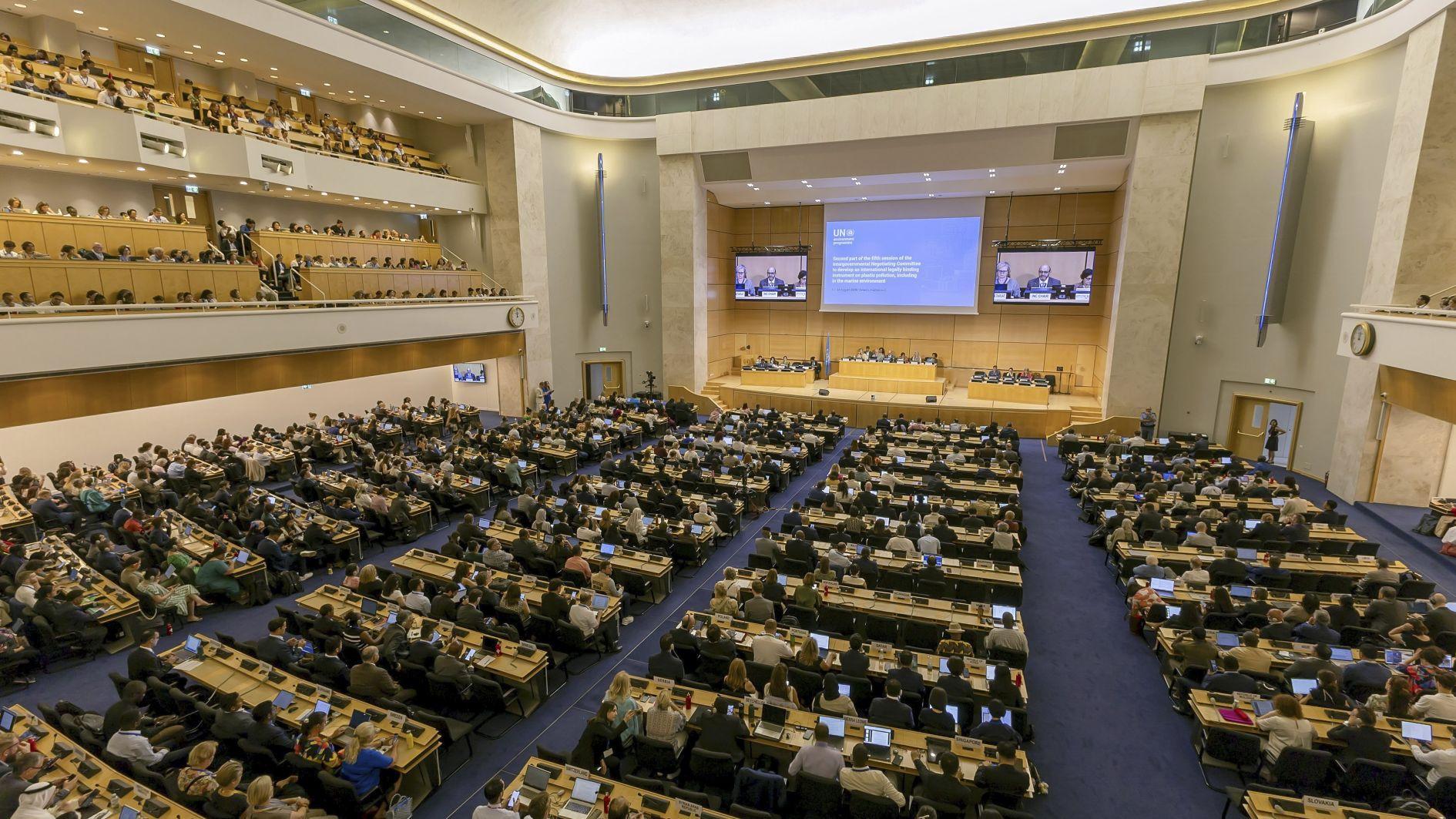
Countries remained at loggerheads on Monday over how to tackle plastic pollution, with only four days left to craft a landmark global treaty on reining in the ever-growing scourge.
While plastic has transformed modern life, plastic pollution poses an increasing threat to the environment and the human body, and every day the garbage accumulates on land and in the oceans.
The 184 countries meeting at the United Nations to sculpt a first international accord setting out the way forward return to the negotiating table after a day off on Aug. 10 to reflect on their differences.
The first week of talks in Geneva fell behind schedule and failed to produce a clear text, with states still deeply divided at square one: The purpose and scope of the treaty they started negotiating two and a half years ago.
Last week, working groups met on technical topics ranging from the design of plastic to waste management, production, financing for recycling, plastic reuse, and funding waste collection in developing countries.
They also discussed molecules and chemical additives that pose environmental and health risks.
A nebulous cluster of mostly oil-producing states calling themselves the Like-Minded Group, including Saudi Arabia, Kuwait, Russia, Iran, and Malaysia, want the treaty to focus primarily on waste management.
The United States and India are also close to this club.
At the other end of the spectrum, a growing faction calling themselves the "ambitious" group want radical action written into the treaty, including measures to curb the damage caused by plastic garbage, such as phasing out the most dangerous chemicals.
The ambitious group wants a clause reining in plastic production, which is set to triple by 2060.